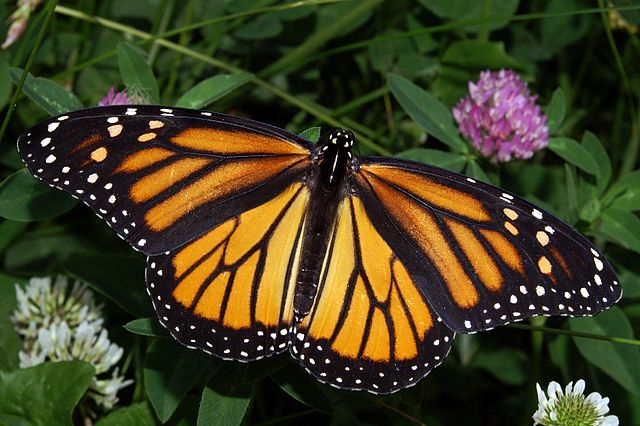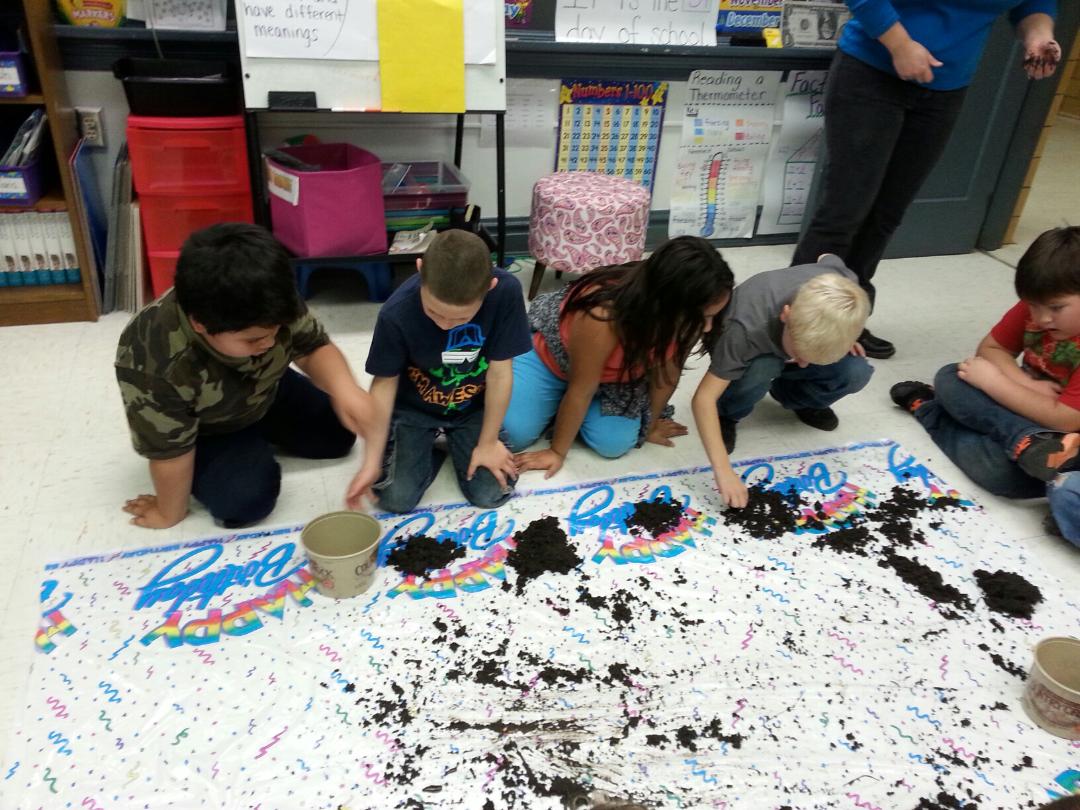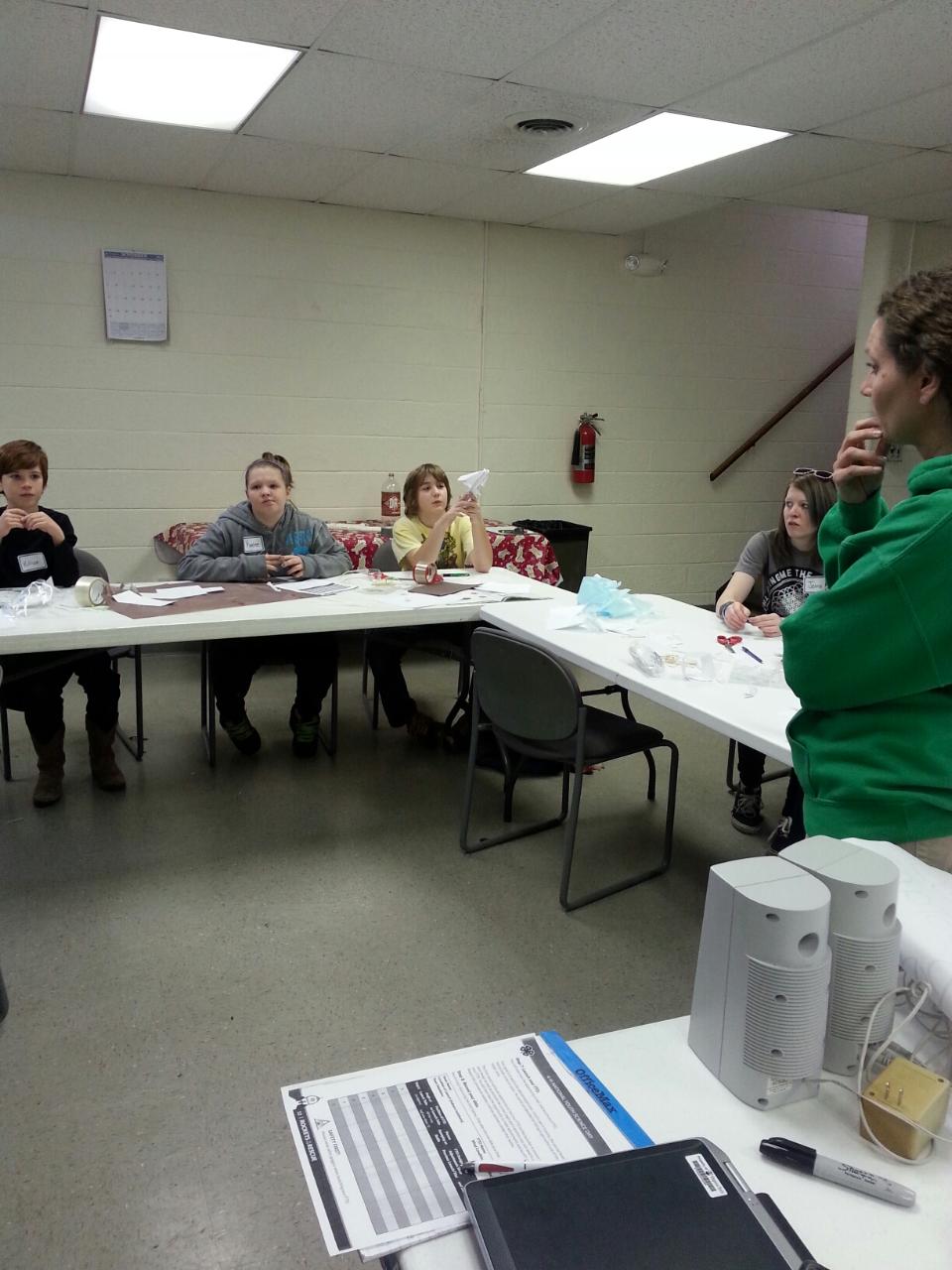Soil Paint
Why is soil important? Think about it…without soil there wouldn’t be plants. Without plants we couldn’t breathe, we would all live in houses that were flimsy or fall down (no wooden structure), the cows couldn’t eat…no cheeseburgers and so much more! Today I visited Lacey Spring Elementary to teach students about the importance of soil. After a quick lesson on soil-students were able to “paint” with different types of soil (clay vs sandy soil). This activity allows students to see that not all soil is alike…I give them several different colors of soil to paint with.

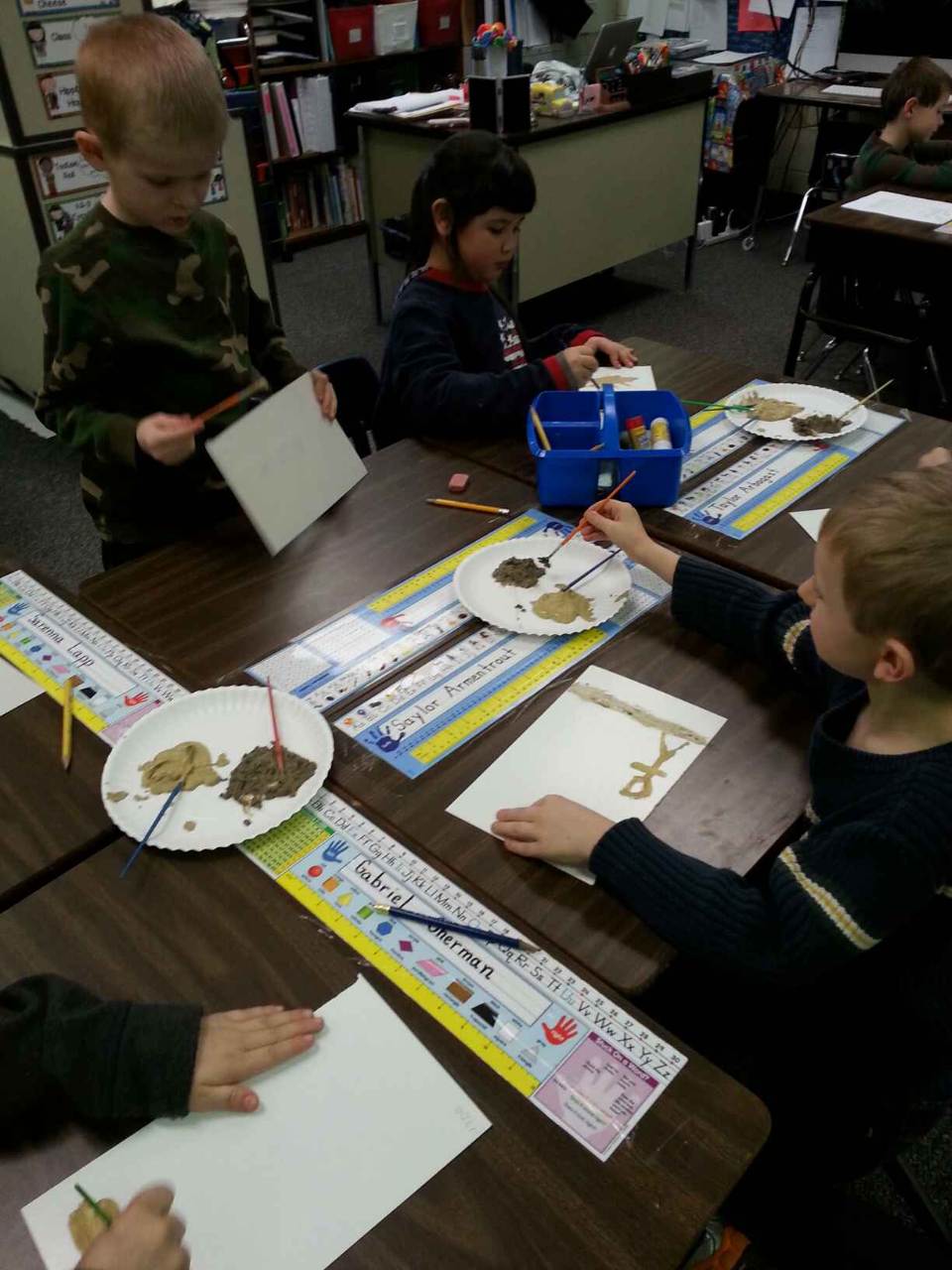
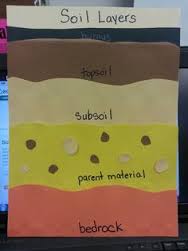
4-H curriculum on soil is available to all grades! Older students still love to soil paint but also enjoy taking a soil sample outside of the school, creating a soil shake, and putting together a soil profile with construction paper. Contact Rosemary to learn more!

